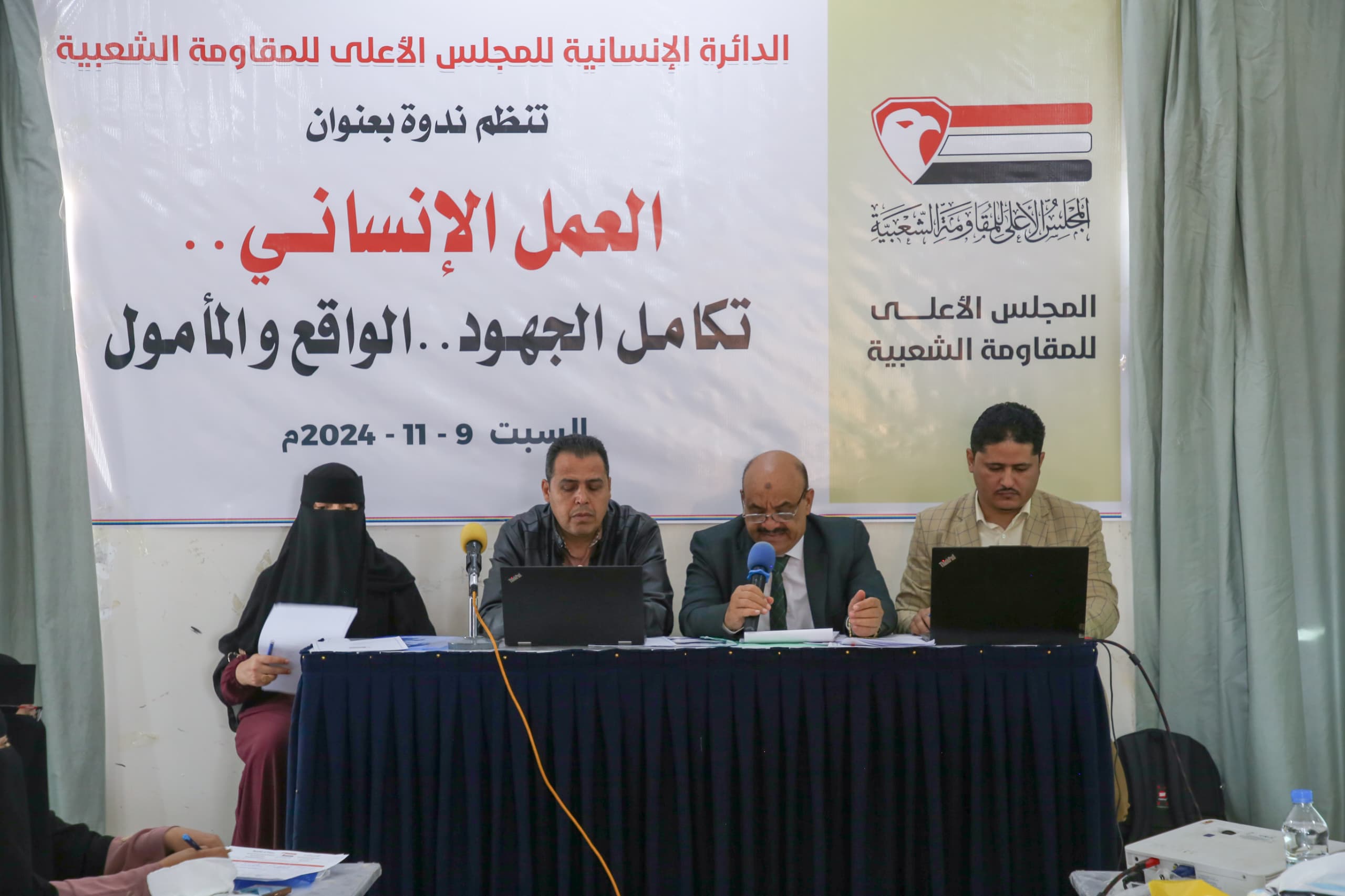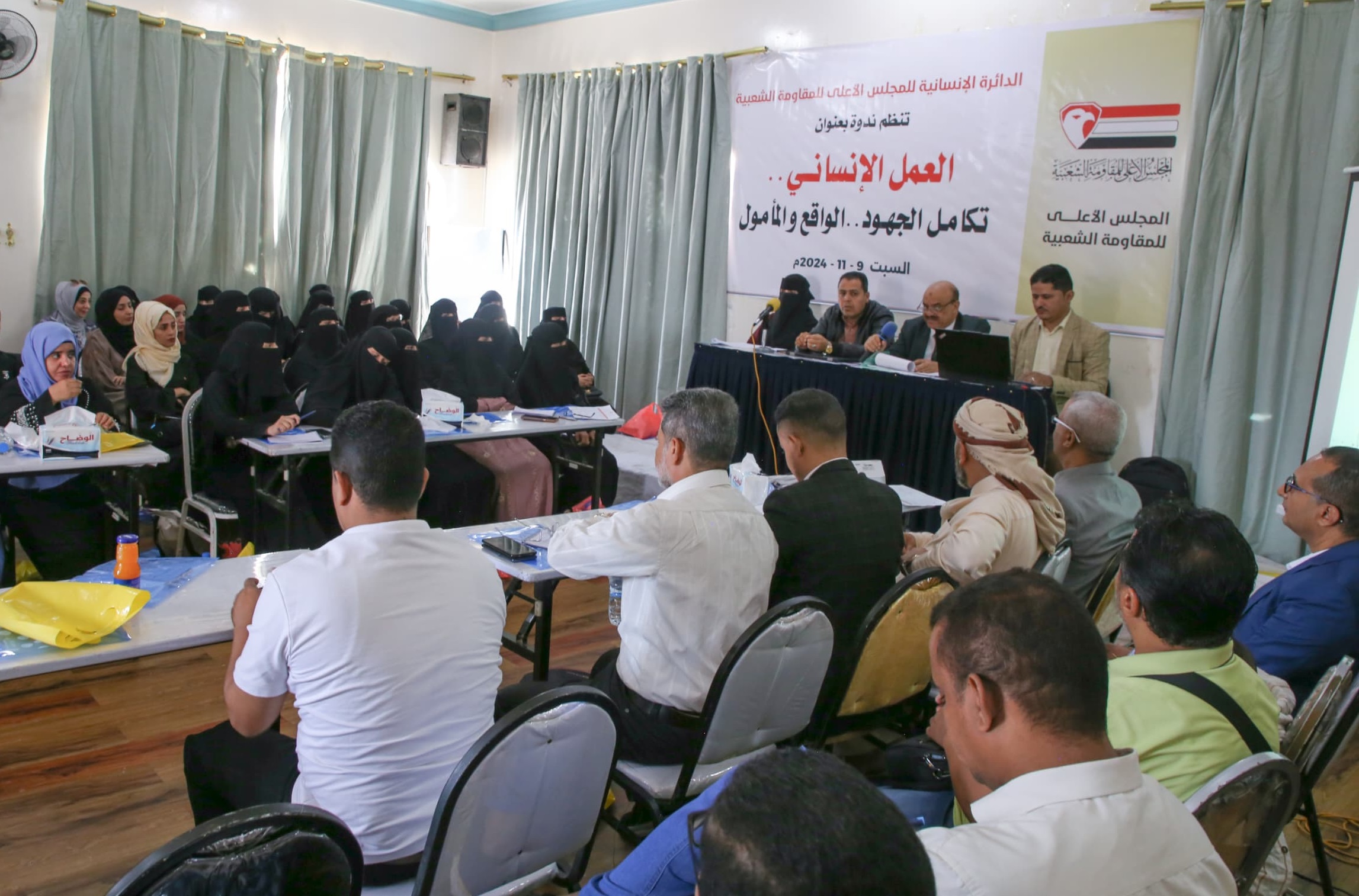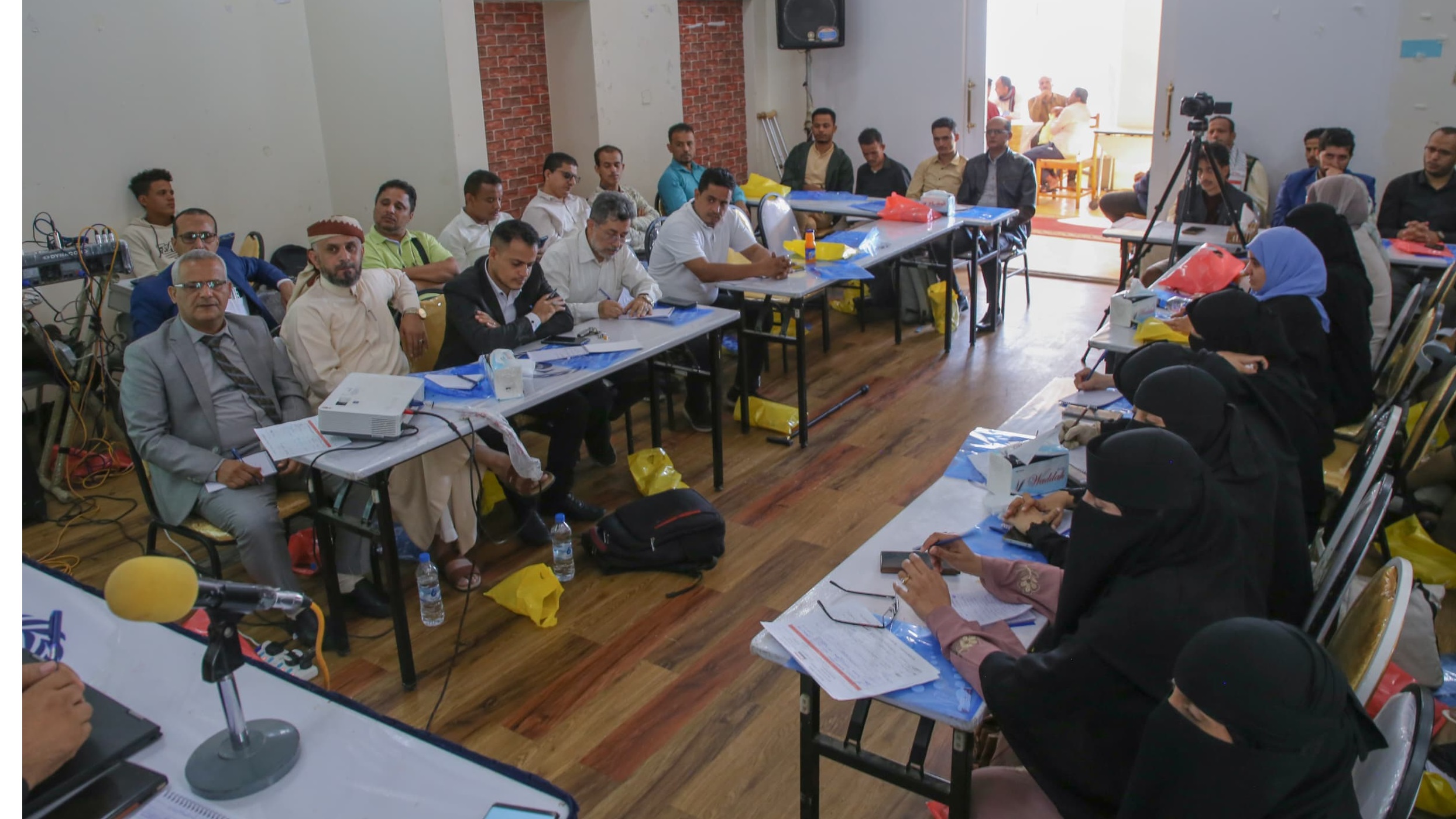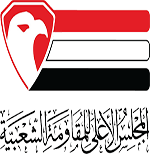A seminar in Taiz stresses the need for integration between organizations and institutions to address humanitarian needs
2024-11-10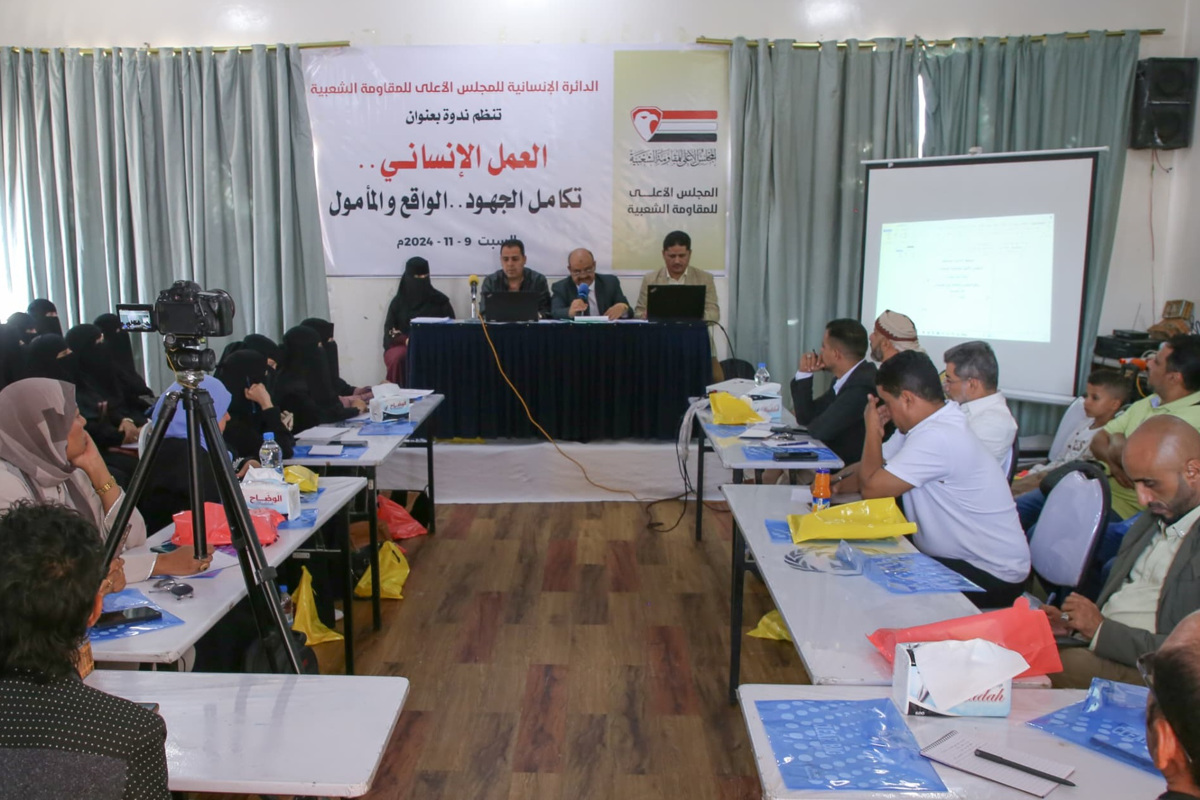
A seminar in Taiz stresses the need for integration between organizations and institutions to address humanitarian needs
Taiz: Private
A seminar organized by the Humanitarian Department of the Supreme Council of the Popular Resistance, today, Saturday, in the city of Taiz, stressed the importance of adopting a number of mechanisms and strategies to achieve effective integration between local humanitarian organizations in the governorate.
A paper entitled "Integration and the desired cooperation between civil society organizations" presented by one of the leaders of humanitarian work, Mr. Jamil Al-Jabri, stressed that effective integration between organizations contributes to unifying efforts to implement more profound and sustainable projects for the target groups, especially the most affected.
Al-Jabri reviewed a number of proposed mechanisms and strategies to achieve effective integration between local humanitarian organizations, most notably the establishment of a local coordination network, the development of a joint database, the establishment of partnerships and memoranda of understanding, and the exchange of resources and expertise.
In a paper entitled "The reality of cooperation and integration between institutions.. Taiz as a model", presented by Dr. Abdulrahman Hassan, Executive Director of Sheikh Hamoud Saeed Al-Mikhlafi Foundation, stressed that "local institutions in Taiz represent a basic lifeline in light of the difficult circumstances the city is going through."
Hassan added that "despite the challenges, the work of local institutions in Taiz contributes to strengthening the social fabric and enhances the spirit of solidarity among the population, as the role of the local community in providing support and assistance to each other appears in light of the current situation, which helps in alleviating the psychological and economic effects of the war."
For her part, Hayat Al-Dhabhani, Head of the Professional Training and Rehabilitation Institute, spoke about the needs of vulnerable groups and the abandonment they are exposed to, noting that identifying vulnerable groups is the first step to determining priorities and needs for them, directing humanitarian efforts, and formulating effective policies to improve and enhance protection for these vulnerable groups.
Al-Dhabhani stressed the need for official bodies to play their role in caring for and protecting vulnerable groups, especially the wounded, paralyzed, disabled, and elderly patients in need of urgent interventions, in addition to comprehensive care for the families of martyrs and empowering them economically, and linking humanitarian aid to sustainability projects.
At the opening of the symposium, Magdy Jamil, the General Coordinator of Humanitarian Affairs in the Supreme Council of the Popular Resistance, introduced the Humanitarian Circle, whose most notable achievements were the treatment, rehabilitation and installation of prosthetic limbs for a thousand wounded at the Arab Center for Prosthetic Limbs in Salalah, Oman, in addition to the rehabilitation and training of four thousand families of martyrs and wounded and empowering a number of them through the Professional Training and Rehabilitation Institute, in addition to paying monthly salaries to more than 700 wounded from several Yemeni governorates, supporting twenty wounded in Marib Governorate with ready-made housing, and other humanitarian projects. The symposium concluded with rich interventions by the attendees, about humanitarian work in Taiz and the challenges it faces, and ways to enhance and integrate joint efforts to mitigate the effects of the war.
